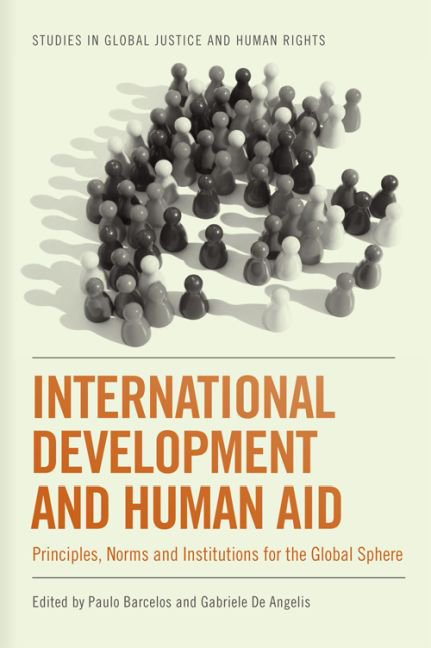Book contents
- Frontmatter
- Contents
- List of Contributors
- Acknowledgements
- 1 Justice in a Complex World: An Introduction
- Part I Human Rights and the World Economy: Questions of Scope
- Part II The Applicability of Global Principles – Some Contemporary Dilemmas
- 4 Toward Another Kind of Development Practice
- 5 Three Approaches to Global Health Care Justice: Rejecting the Positive/Negative Rights Distinction
- 6 Restitution and Distributive Justice
- Part III Justice and International Institutions
- Index
4 - Toward Another Kind of Development Practice
from Part II - The Applicability of Global Principles – Some Contemporary Dilemmas
Published online by Cambridge University Press: 26 April 2017
- Frontmatter
- Contents
- List of Contributors
- Acknowledgements
- 1 Justice in a Complex World: An Introduction
- Part I Human Rights and the World Economy: Questions of Scope
- Part II The Applicability of Global Principles – Some Contemporary Dilemmas
- 4 Toward Another Kind of Development Practice
- 5 Three Approaches to Global Health Care Justice: Rejecting the Positive/Negative Rights Distinction
- 6 Restitution and Distributive Justice
- Part III Justice and International Institutions
- Index
Summary
INTRODUCTION
In this chapter I will defend the thesis that there are good reasons to support certain forms of the practice common among states of giving and receiving official development assistance (ODA). These reasons are grounded in a discourse-theoretic, internationalist account of global justice and represent a novel moral rationale for certain forms of this international development practice. By moral rationales for international development practice I refer to moral justifications for the promotion of development activities across national borders. This promotion is conducted both by governmental and intergovernmental institutions such as, respectively, the British Department for International Development and the United Nations Development Programme. However, we will see that the forms of international development practice that discoursetheoretic Internationalism supports are recognizably different from the ones generally practiced today.
This discourse-theoretic, internationalist moral rationale agrees with theorists of global distributive justice – like Beitz, Pogge, Caney, and Brock – that participation in certain forms of international development practice can count as a demand of justice instead of solely a demand of humanity. Yet it also rejects their view that the moral rationale for international development practice is to further realize an ideal of global distributive justice. Rather, I will present a different moral rationale, contending that this practice can contribute to establishing certain domestic socio-political structures that are required by global discursive justice. This is because, by fostering in various ways democratic practices at the domestic level, certain forms of international development practice help to satisfy the intranational conditions of a fundamentally just global basic structure. Thereby the processes of opinion and will formation at the international level can eventually be properly structured so as to permit the discursive justification of principles of global distributive justice that one may reasonably presume to be justified. I emphasize ‘eventually’, since, in addition to the fulfillment of the intranational conditions, certain international conditions regarding the degree of inequality in justificatory power at the international level must also be satisfied.
- Type
- Chapter
- Information
- International Development and Human AidPrinciples, Norms and Institutions for the Global Sphere, pp. 79 - 107Publisher: Edinburgh University PressPrint publication year: 2016

